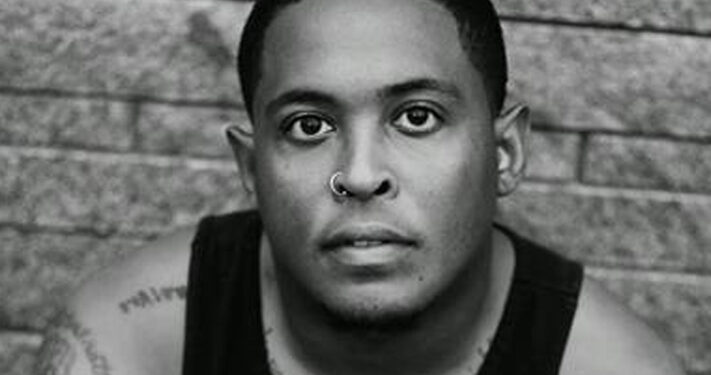Introduction
Alternate Names For black Boys Summary By Danez Smith Alternate Names for Black Boys is a poignant and thought-provoking poem by Danez Smith, a contemporary poet whose work often centers on issues of race, identity, and social justice. Published in Smith’s acclaimed poetry collection Don’t Call Us Dead (2017), the poem addresses the complex realities faced by Black boys in America, using vivid imagery and innovative language to explore themes of violence, marginalization, and the humanity that is often denied to young Black men.Alternate Names For black Boys Summary By Danez Smith
Smith, who identifies as Black and queer, brings a unique perspective to the exploration of racial trauma, intersectionality, and the impact of societal violence on marginalized communities. Alternate Names for Black Boys challenges the stereotype of the Black male experience, highlighting the multifaceted nature of Black youth while simultaneously critiquing the ways in which society reduces them to a singular identity marked by violence and fear.
The poem’s title itself signals the central theme of the work—how society often imposes alternate, reductive names or labels on Black boys. These names are rooted in historical and systemic injustice, shaping the way Black boys are perceived, treated, and remembered in the world. Through lyrical language, the poem offers a powerful counter-narrative to the erasure of Black lives, inviting readers to reflect on the multiplicity and complexity of Black existence.Alternate Names For black Boys Summary By Danez Smith
Summary of Alternate Names for Black Boys
Alternate Names for Black Boys begins with a stark meditation on the violence and injustice that surrounds Black boys in America, particularly in relation to police brutality and societal fears. Through the speaker’s voice, Smith lists various “alternate names” that could be used to define Black boys, many of which reference tragic deaths or moments of violence that have occurred in real life. These names evoke the loss of innocence, the erasure of Black childhood, and the way in which society often reduces Black youth to the worst-case scenarios—victims, criminals, or stereotypes.
The poem’s language shifts from stark, painful realities to moments of tenderness and vulnerability, offering a counterbalance to the violence and marginalization that is often associated with Black boys. Throughout the piece, Smith emphasizes the humanity and individuality of Black boys, suggesting that there is so much more to their lives and identities than the labels society places on them.

There is also a sense of reclamation in the poem, as Smith explores the possibility of alternative names that would reflect the full spectrum of Black boys’ lives—names that are not defined by violence or stereotypes but by joy, complexity, and humanity. In this way, the poem becomes an act of resistance, challenging readers to reconsider how they view Black boys and, by extension, Black lives as a whole.Alternate Names For black Boys Summary By Danez Smith
Alternate Names For black Boys Summary By Danez Smith The poem’s structure, blending free verse with moments of lyrical repetition, reflects the tension between the harshness of the world and the desire for redemption. Smith’s use of fragmented, short lines builds a sense of urgency, drawing attention to the cyclical nature of violence and the constant threat that hangs over Black boys, while also creating space for moments of introspection and emotional release.Alternate Names For black Boys Summary By Danez Smith
Themes in Alternate Names for Black Boys
1. Violence and Marginalization
One of the primary themes in Alternate Names for Black Boys is the pervasive violence and marginalization faced by Black boys, especially within the context of American society. Through the poem’s repeated use of “alternate names,” Smith illustrates the way in which Black boys are often viewed through the lens of violence, danger, and criminality. The poem references real-world instances of police brutality, systemic racism, and the ever-present threat of violence against Black bodies. These “names” symbolize the way Black boys are reduced to a singular narrative of victimhood or criminality, with little room for nuance or individuality.
Read more
Smith also critiques the societal structures that perpetuate this violence, from the media’s portrayal of Black youth to the criminal justice system’s treatment of young Black men. The poem highlights how Black boys are often denied the opportunity to simply exist as children or to be seen as individuals with dreams, desires, and complexities beyond their racial identity.
2. Reclamation and Resistance
Another central theme in the poem is the act of reclamation—reclaiming Black boys’ humanity and complexity. While the poem acknowledges the violence and marginalization faced by Black boys, it also calls for a shift in narrative. Smith proposes the idea of “alternate names,” which are not rooted in victimhood or violence but in the full range of human experience. This act of naming becomes a form of resistance, challenging readers to see Black boys in their entirety and not just through the lens of social and cultural stereotypes.
In this way, the poem becomes an act of defiance, pushing back against a society that has often reduced Black lives to mere statistics or abstract concepts of violence. By proposing alternate names, Smith offers a form of liberation, suggesting that there is power in reclaiming one’s own identity and narrative.
3. Identity and Intersectionality
Smith’s exploration of identity is also crucial to the poem’s themes. The poem is not only about Black boys but also about the intersectionality of race, gender, and sexuality. Smith, who identifies as Black and queer, brings an important perspective to the conversation by highlighting how these boys’ experiences are shaped by multiple layers of identity. The intersection of race and gender—particularly the way Black boys are viewed as both “threatening” and “vulnerable”—is a key theme in the poem.
Moreover, the poem touches on the complexity of Black masculinity, which is often portrayed in limiting ways. Through its exploration of alternate names, the poem seeks to expand the conversation beyond conventional understandings of Black masculinity and offer a more nuanced view of Black youth.
Read more
4. Loss and Grief
The theme of loss is pervasive throughout Alternate Names for Black Boys. From the societal loss of Black boys’ humanity to the real-life loss of life through violence, the poem grapples with the grief that comes with these losses. The “alternate names” not only reflect the ways in which Black boys are stereotyped or marginalized, but they also symbolize the mourning and grieving process that follows each tragedy. The repetition of names creates a rhythm of mourning, highlighting the cyclical nature of violence and the collective trauma experienced by communities of color.

5. Joy and Humanity
Despite the poem’s focus on violence and marginalization, Smith also incorporates moments of tenderness, joy, and humanity. The alternate names are not only linked to death or trauma, but they also suggest that Black boys are entitled to experiences of love, joy, and self-expression. In a society that often denies Black boys the space to exist beyond trauma, the poem emphasizes their full humanity, celebrating their complexity and potential. The contrast between violence and joy reflects the contradictions of Black life in America and serves as a reminder of the resilience of Black youth.
Read more
FAQs
1 What is the significance of the title Alternate Names for Black Boys?
The title reflects the various ways in which Black boys are seen and understood by society. These “alternate names” are often rooted in violence, criminality, and victimhood, but the poem also suggests the possibility of reclaiming these names to reflect a broader, more nuanced identity.
2 What themes does Danez Smith explore in this poem?
The poem explores themes of violence, marginalization, reclamation, grief, identity, and the complexities of Black masculinity. Smith also addresses the intersectionality of race, gender, and sexuality in the lives of Black boys.
3 How does Smith critique societal perceptions of Black boys?
Smith critiques how society reduces Black boys to stereotypes or statistical data, often stripping them of their humanity and individuality. Through the poem, Smith advocates for a broader, more complex understanding of Black youth that includes their joys, dreams, and identities.
4 What role does intersectionality play in the poem?
Intersectionality plays a crucial role in understanding the layered experiences of Black boys. Smith acknowledges that their experiences are shaped not just by race but by the intersections of gender and sexuality, offering a more nuanced and complex view of Black identity.
5 How does the poem offer a sense of hope or resistance?
The poem offers hope through its call for reclamation and resistance. By proposing “alternate names” for Black boys, Smith provides a way to reclaim their identities and narratives from a society that seeks to define them by violence and marginalization. This act of naming becomes an act of liberation.
Read more
















